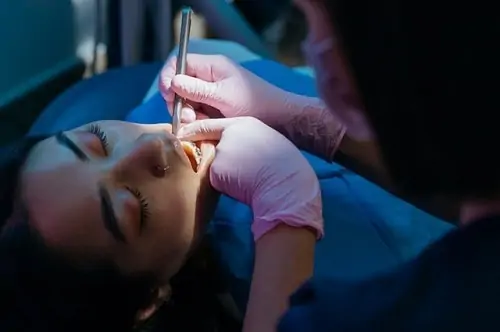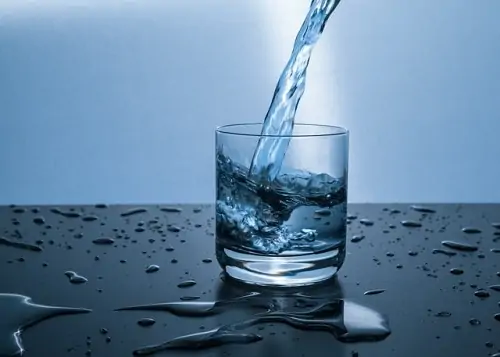Blog
What Does It Feel Like When A Filling Falls Out?

More than 91% of the American adult population has had at least one cavity, and the most common treatment for a cavity is a super-strong dental restoration called a filling. However, no matter how tough a filling is, it can still come loose and fall out. But how do you know if you lost a filling and need to see a dentist in Douglasville?
Pain & Sensitivity
While numerous things can contribute to tooth pain and sensitivity, one of the most common explanations for this type of discomfort is a lost filling. Hot or cold foods and drinks that cause zings of pain through your tooth could indicate that the protection of a filling is no longer there. If you’re ever experiencing tooth pain or hot-cold sensitivity, it usually means something isn’t right and that you should see your dentist as soon as possible.
Feeling a Hole
Sometimes fillings fall out and you don’t even know it. This usually happens while eating, and you may not experience any pain but your tongue feels a sharp hole or indentation in your tooth. This is a key indicator that your filling is no longer there and that you need a replacement.
Biting a Hard Crunch
As we’ve mentioned, losing a filling while eating is pretty common. If a filling falls out while you’re chewing you can actually bite down on it and feel a hard crunch. Now, tiny crunches happen while eating all sorts of food, so don’t panic. See if you can feel around for any holes. If you do, call your dentist in Douglasville.
Food Gets Stuck
Food particles will always get stuck in between teeth and in the tiny crevices. But if you’re noticing a large amount of food buildup in an area that had a filling, you may have lost a filling without knowing it.
Reduce Your Risk
Dental fillings are constructed of tough materials, but they aren’t invincible. They can weaken over time naturally or because of a bad bite, clenching, or grinding. However, many fillings fail due to the foods we eat. Chewy, sticky foods as well as hard, crunchy snacks such as popcorn and pretzels are some of the most common causes of loose or lost fillings. To reduce your risk of losing a filling, enjoy these types of foods in moderation, take good care of your teeth by brushing and flossing regularly, and wear your night guard if you’re prone to clenching or grinding while you sleep.
If you think one of your fillings fell out, it’s crucial to schedule an appointment with your dentist in Douglasville as soon as possible. Early treatment can help save your tooth and prevent other problems from occurring.
Are Sports Drinks Bad For Teeth?

Sports drinks are the beverage of choice for many after exercise or spending a long day in the hot weather. While these electrolyte-packed drinks can help replenish the body with minerals lost through sweat, they can also be bad for teeth. Join your dentist in Douglasville as we take a look at how these beverages can cause irreversible damage to your teeth.
This Time, It’s Not The Sugar
Some people choose to drink sports beverages in place of soda because they don’t contain as much sugar. Now, while it’s still very true that sugar can contribute to oral health problems, this time, we’re more concerned with the acid found in many sports drinks.
Acidic foods and drinks damage tooth enamel, and once enamel is gone… it’s gone. This is concerning for your dentist in Douglasville. Tooth enamel serves as a layer of protection against bacteria, and without it, bacteria have full reign over your teeth. These bacteria will work their way into tiny crevices and feed on leftover food particles and sugars. They will then release acid as part of their digestion process. And the cycle repeats. More acid means more risk for enamel loss and more risk for dental problems.
Cavities & More
Acid and bacteria are a recipe for decay and cavities. When a cavity is new, it’s usually easy to treat with a dental filling. However, if the decay is not treated by your dentist in Douglasville, it will continue to eat away at the tooth. Deeper areas of decay may require a root canal and perhaps a dental crown to stop the progression and save your tooth. But if not treated, an infection can develop, or the tooth may need to be extracted.
Signs of a Cavity
Early treatment is the best way to protect your tooth and stop decay. If you notice any signs of a cavity, see your dentist in Douglasville promptly. Signs include:
- Sensitivity to heat, cold, or sweets
- Discoloration
- Toothaches
- Pain when biting
- Holes or pits on the tooth surface
The next time you’re looking to quench your thirst, we always recommend choosing water. However, if you need that extra level of hydration and electrolytes, try drinking your sports drink with a straw. This will help limit the amount of acid that comes in contact with your teeth.
As always, brushing and flossing your teeth every day and seeing your dentist twice a year will also help protect your teeth and overall oral health.
